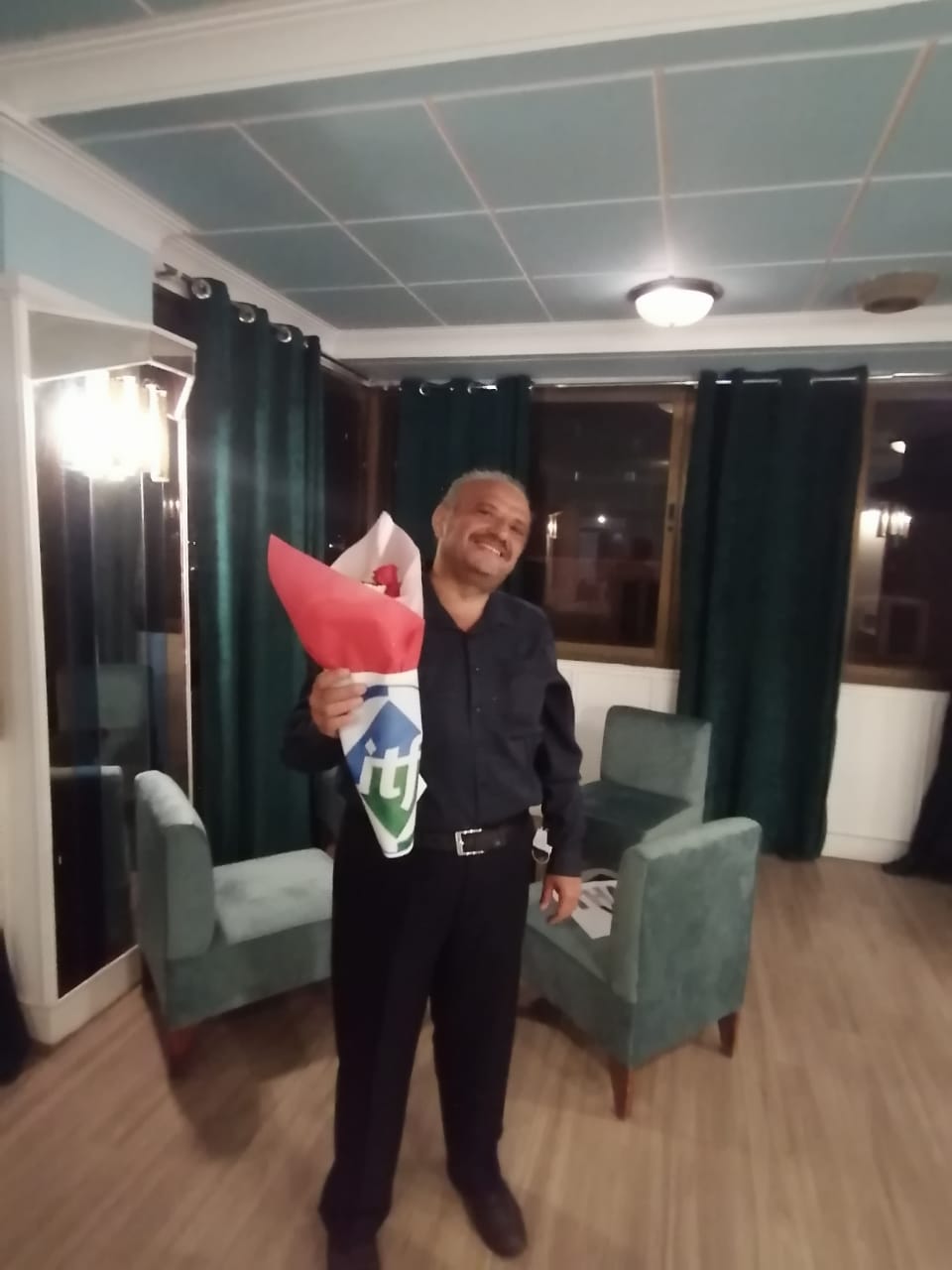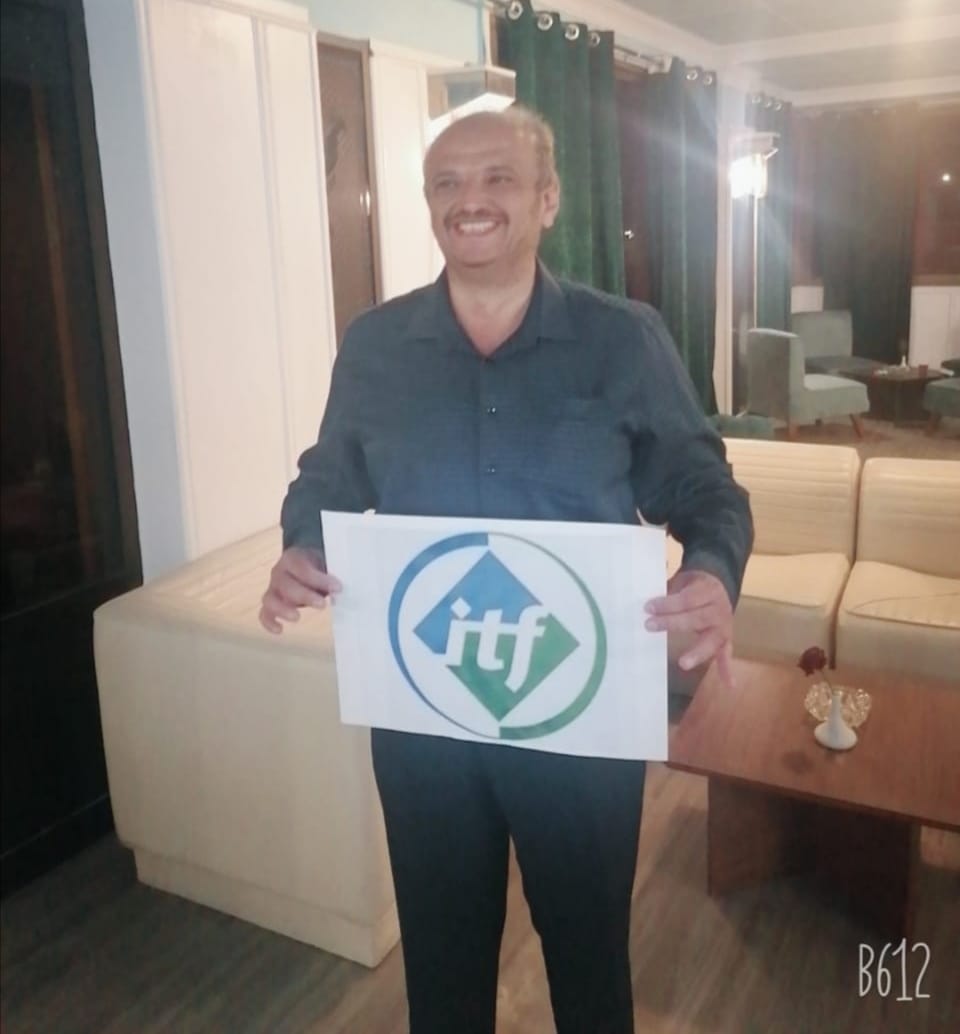“This may be the last message, I write,” the captain of the MV Kenan Mete emailed on 11 February after the emergency generator on board failed, plunging his ship into darkness.
“I repeat. There is no electricity, water or food on board,” he wrote three days later.
Turkish captain Vehbi Kara was the last man standing on the 8,897 gross tonne abandoned bulk carrier in the Egyptian port of Adabiya, in the Suez Canal. But Captain Kara was not entirely alone.
“There are too many mice on board,” he wrote. “I could not sleep because of the noise they made at night. I've been trying to live alone for 12 days. In this state it is not possible for a person to live on this ship.”
The Panamanian-flagged MV Kenan Mete has been alongside the port since the end of June 2020, when ship owner Blodwen Marina abandoned the vessel and its crew. There were a total of 25 seafarers on board, heralding from Georgia, India, Russia, Syria, Turkey and Ukraine.
A dispute emerged between the Istanbul-based shipowner and the Kenan Mete’s crew over Blodwen Marina’s failure to pay wages. The dispute initially prevented the crew from leaving with their outstanding wages.
In September, intervention from the International Transport Workers’ Federation (ITF) led to all 25 seafarers being paid four months’ wages by the ship’s insurance provider, a P&I club. The wage payments were a welcomed reprieve for the crew, because two of the seafarers had not been paid for two months. ITF investigations uncovered that many more had not received wages for the 12 months prior to the vessel arriving in Egypt. Some had even gone as long as 18 months without pay.
The ITF reported the crew abandoned to the International Labour Organization in October 2020. The ILO definition of abandonment requires at least two months of unpaid wages, and reporting a ship is an important part of the process in fighting for seafarers’ interests in abandonment cases.
With no support from the shipowner, the ITF began to push for crew to be allowed to disembark. But getting the crew off the MV Kenan Mete proved a mission filled with difficulties.
ITF Arab World and Iran Network Coordinator, Mohamed Arrachedi worked with the ITF Contact for Egypt, Alsayed Alchazli on the seafarers’ case.
Mr Alchazli played a central role in assisting the distressed seafarers by liaising with the different Egyptian authorities, administrations and legal services on their behalf. After hundreds of hours of work over more than two months, the seafarers’ claims for outstanding wages from the sale of the ship were able to be submitted to the Egyptian courts overseeing the sale.
According to Arrachedi, who has handled hundreds of abandonment cases over his career, getting the ITF’s legal assistance to the crew proved difficult.

In December, the ILO/IMO ‘Seafarer Crisis Action Team’ wrote to the Egyptian authorities stressing the port state obligation to ensure crew were repatriated according to the Maritime Labor Convention.
To make matters worse, on 14 December one of the seafarers tested positive to COVID-19 and the ship and its crew were put under a strict quarantine.
Mr Arrachedi said in the three months between October 2020 and January 2021, the ITF was able to see almost all of the crew leave the vessel and return to their families. All except one.
“We worked hard. And that hard work meant that we got all of the seafarers off – but Captain Kara was kept on board against his will,” said Arrachedi.
Arrachedi said that when Egyptian authorities seized the vessel on 15 January this year, the ship had over USD $528,467 indebted to creditors. According to the ILO abandonment database, the court nominated Captain Kara as the judicial guard until the vessel could be sold at auction – with proceeds used to settle some or all of the ship’s debts.
In pleas to authorities, Captain Kara claimed he was being tortured by being detained on the dingey, unsafe ship. But his messages to the port master went unanswered. He was not even allowed to walk on the pier.
“The action taken against me, is against human rights. I am having a nervous breakdown. I have heart disease. I approach death every day because of my illnesses. I have to be hospitalised. I'm dying and asking for help,” he pleaded in emails.
Egyptian authorities said Captain Kara had to stay until the ship’s agent assigned another master via the courts. Then, on the evening of 14 February the captain was permitted to disembark the ship. This was thanks to ITF pushing, together with the support of the IMO, the Turkish embassy in Cairo and the ship’s P&I club. He was allowed to go to a nearby hotel, but not without conditions.

“I'm at the Red Sea Hotel right now,” wrote Captain Kara on 14 February this year. “I'm fine, but I'm very tired.”
Since Kara wrote that note on his wellbeing, he has spent another 23 days and nights trapped in the same hotel room.
Egyptian authorities still refuse to let him leave due to his condition as ‘Legal Guard’ of the ship, as appointed by the court.

The ITF’s Arrachedi said the federation is still seeking steps that would allow the captain to be repatriated.
“It has been a long and difficult case, the seafarers endured very hard moments. And for one of these seafarers – Captain Kara – the suffering continues.”
“We reiterate today our urgent call for Egyptian maritime, port and Suez Canal economic zone authorities, to make the necessary steps that would allow the captain to be duly repatriated home.”

“The captain needs to be repatriated as the rest of the crew are already home. Maritime authorities in Egypt are saying that they do not object to the seafarers’ repatriation and that, instead, this is an issue of the court’s making. But the reality is that the maritime authorities could have been working arrange a reliever with the consent of the court and avoid, and thereby reduce the burden of being this ship’s ‘legal guard’ from weighing so heavily on one man’s shoulders. They should be trying everything.”
“The current situation condemns Captain Kara to remain in Egypt, with no income, unpaid and awaiting until the sale of this ship. It is not fair and breaches his basic and elemental seafarer rights. We hope that resolving this is dealt with as a matter of priority,” said Arrachedi.



